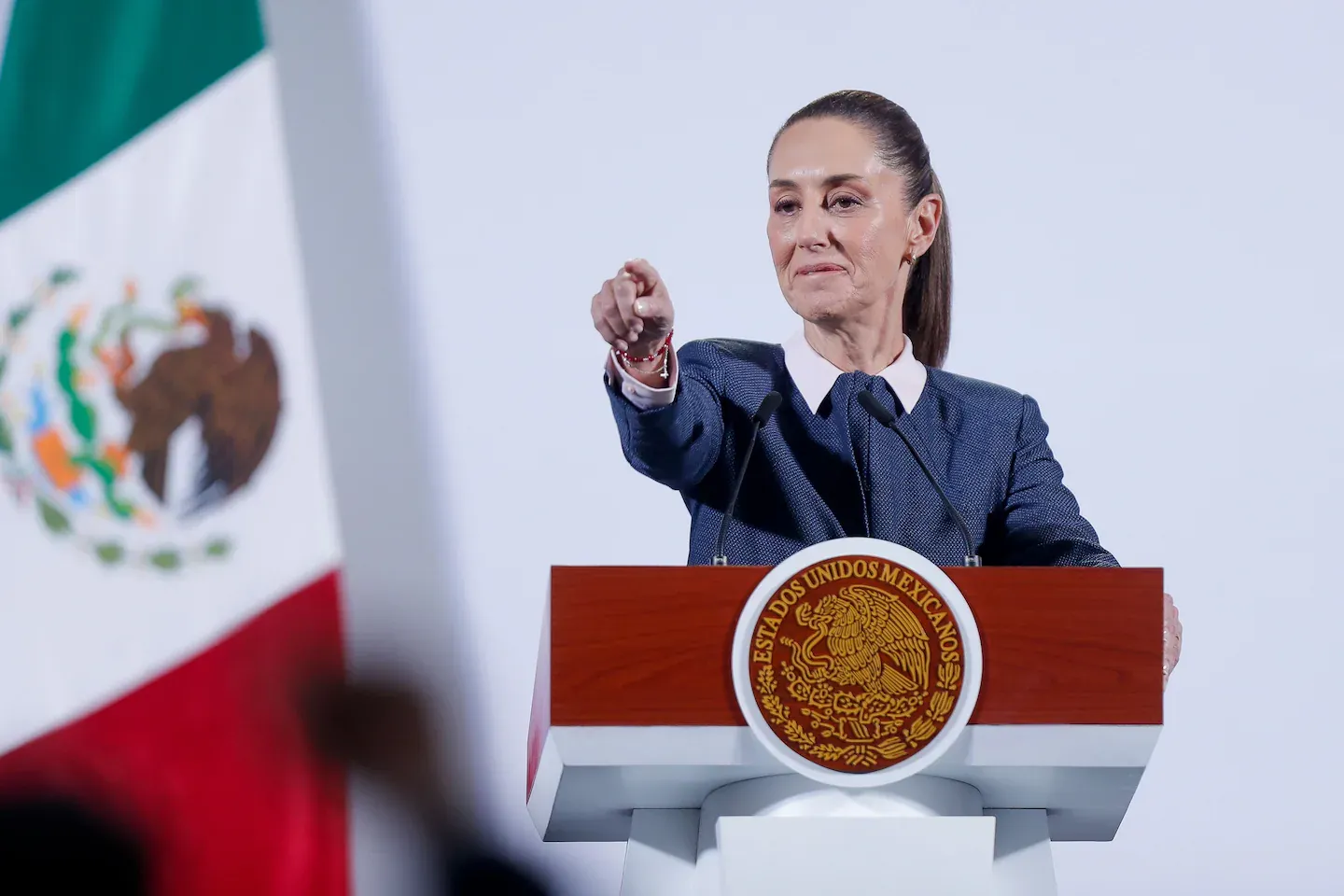Economists Warn Trump’s Tariff Plans May Drive Up Costs Amid Mexican Retaliation Threats
Economists say Trump’s tariffs could function as a consumption tax, raising prices on imported and domestically produced goods. A Yale University study estimates the tariffs could cost American households an additional $2,421 annually.

WASHINGTON — President-elect Donald Trump’s proposed tariffs on imports from Mexico, China, and Canada are drawing criticism from economists and sparking potential trade tensions with Mexico. Experts warn the tariffs could increase costs for American households and risk economic repercussions on both sides of the border.
Trump has announced plans for a 25% tariff on Mexican goods if the country doesn’t curb the flow of drugs and migrants into the U.S. Mexican President Claudia Sheinbaum responded Tuesday by suggesting Mexico could impose retaliatory tariffs, warning of a damaging escalation.
“One tariff would be followed by another in response, and so on until we put at risk common businesses,” Sheinbaum said, noting the interdependence of industries like automobile manufacturing, where plants span both nations.
While Sheinbaum expressed willingness to engage in talks, she deflected blame for drug issues, calling them “a U.S. problem.” She highlighted Mexico’s efforts to reduce migrant caravans. Still, she acknowledged that the fight against synthetic opioids like fentanyl, manufactured by Mexican cartels with chemicals from China, had weakened in recent months.
Economists say Trump’s tariffs could function as a consumption tax, raising prices on imported and domestically produced goods. A Yale University study estimates the tariffs could cost American households an additional $2,421 annually.
“This will make U.S. families worse off, even if no other country retaliates,” said Wayne Winegarden, an economist at the Pacific Research Institute.
Industries reliant on imports, including technology, automotive, and manufacturing, are bracing for the impact. Steve Madden has already begun shifting production from China to other countries, while companies like AutoZone plan to pass increased costs onto consumers.
Inflation, which peaked at 9.1% in 2022, has slowed but remains fragile. Economists warn tariffs could reignite goods inflation and exacerbate labor market pressures, increasing costs for services.
During his first term, Trump’s tariffs on steel, aluminum, and other goods led to mixed outcomes—some job creation but also a 0.2% drop in GDP and the loss of 142,000 full-time jobs, according to the Tax Foundation.
As Trump prepares to take office on Jan. 20, his tariff policies and the potential fallout from Mexican retaliation pose significant challenges to his campaign promise to ease economic burdens on American families.






